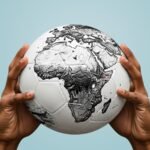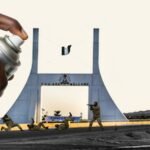When Washington sneezes, Africa catches pneumonia. That old saying has never felt truer than it does now, as deep cuts to U.S. foreign aid begin to ripple across a continent still struggling to recover from economic shocks, pandemics, and conflicts. Hospitals are running short of essential medicines, vaccination drives are stalling, and NGOs are warning of a looming humanitarian vacuum that could undo years of hard-won progress.
The Biden administration’s decision to slash portions of the U.S. Agency for International Development (USAID) budget — part of a broader fiscal tightening and a pivot toward domestic spending — has left many African partners reeling. It’s not just about numbers on a spreadsheet; it’s about lives, livelihoods, and the long shadow of dependency that’s defined Africa–U.S. relations for decades.
In Nairobi, Kenya, the ripple effects are already visible. The once-busy outpatient wing of Mbagathi Hospital now sees fewer patients — not because people are healthier, but because some essential services once subsidised by U.S. funds have been quietly suspended. “Our HIV testing centre used to handle 200 people a day,” said a nurse, requesting anonymity. “Now we barely see 50. The funding dried up, and so did our outreach.”
Across sub-Saharan Africa, USAID has long been a lifeline. It has funded everything from malaria prevention campaigns and clean water projects to support for democratic governance and girls’ education. In 2023 alone, U.S. development assistance to Africa topped $9.2 billion. But the latest cuts estimated at 20 to 30 percent in several key programs threaten to reverse gains in public health, food security, and institutional reform.
American officials defend the move as part of a “strategic realignment,” arguing that African nations must become “self-sustaining partners” rather than perpetual aid recipients. The rhetoric sounds familiar, echoing the “trade not aid” mantra that resurfaces every decade or so in Washington. But for many African governments, the timing couldn’t be worse. Inflation, debt distress, and climate shocks have left budgets stretched thin, while new security threats from Sudan to the Sahel have increased demands on already fragile states.
In Malawi, the ripple is hitting the health sector hard. The U.S.-funded President’s Emergency Plan for AIDS Relief (PEPFAR) has scaled back community programs, leaving local clinics scrambling for alternatives. In Ethiopia, agricultural development projects have stalled, and in Nigeria, civil society organisations say their civic education and anti-corruption campaigns have lost vital funding. “It’s a gut punch,” said a senior NGO director in Abuja. “We’ve built partnerships and trust over twenty years, and suddenly the tap is turned off.”
Critics say the cuts reflect a broader fatigue in Washington an exhaustion with foreign commitments amid domestic political pressure to “fix home first.” Yet geopolitically, the vacuum may not stay empty for long. China, Turkey, and the Gulf states are quietly expanding their development footprints across Africa, often with fewer strings attached. “Nature abhors a vacuum, and so does geopolitics,” quipped a diplomat in Addis Ababa. “If the U.S. pulls back, someone else will step in and not necessarily with the same values.”
The irony is sharp: at a time when the U.S. speaks loudly about countering China’s influence on the continent, it is effectively handing Beijing and others an opening. China’s Belt and Road projects, though controversial, have poured billions into African infrastructure. Russia, too, has sought influence through arms deals and food diplomacy. Against that backdrop, a retreat in humanitarian and development support feels like a strategic own goal.
For ordinary Africans, though, the issue is less about geopolitics and more about survival. “People talk about strategy and influence,” said Grace Moyo, a nurse in Blantyre. “But the mother who can’t get antiretroviral drugs doesn’t care who gives them she just needs them.” Her clinic, once a model of donor cooperation, now faces shortages so severe that staff sometimes ration medication.
Some governments are responding by pledging to fill the gaps. South Africa and Rwanda have increased domestic funding for health and education. But for many poorer nations, that’s simply not feasible. The reality is that aid still matters and not just symbolically. It underpins critical systems that keep millions alive.
Still, amid the gloom, a new conversation is emerging. Economists and activists argue that the crisis could spur overdue reform pushing African nations to strengthen tax systems, prioritise domestic production of medical supplies, and reduce reliance on foreign aid altogether. “It’s painful, but maybe it’s necessary,” said Zambian analyst Bright Tembo. “Dependency dulls innovation. Maybe this is the shock that wakes us up.”
Perhaps. But for now, the pain is real, and the transition uncertain. The grand vision of “self-reliance” sounds noble in Washington briefings, but on the ground in Africa, it feels like a cliff edge. Without a careful handover and sustained investment in capacity-building, aid withdrawal risks doing what no African government wants to admit pushing communities back into crisis.
As one Tanzanian health worker put it bluntly, “When donors sneeze, we don’t just catch a cold anymore — we bleed.”











